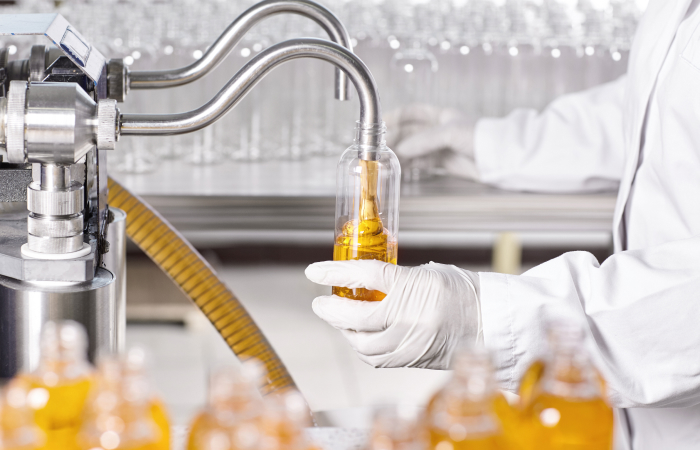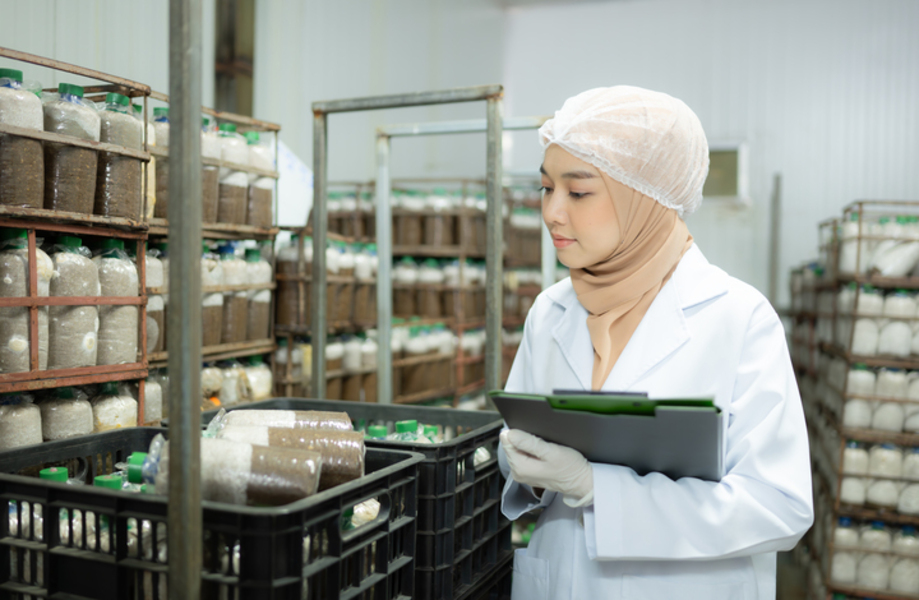
Understanding GDPMD: Good Distribution Practice for Medical Devices
August 4, 2023
Understanding Hazard Analysis Critical Control Points (HACCP)
August 4, 2023Good Manufacturing Practices (GMP) encompasses a set of guidelines and requirements that aim to maintain hygienic conditions and ensure food safety throughout the entire food chain. These guidelines define management and handling actions to create favourable conditions for the production of safe food and the design and operation of facilities, processes, and food-related products.
Developed by the Codex Alimentarius, GMP prioritises customer protection and entails adherence to fundamental operational conditions and procedures that food companies must meet.
The Malaysian government, in line with international standards, has implemented GMP regulations to protect consumers and uphold the integrity of the food industry. GMP guidelines in Malaysia define the necessary operational conditions and requirements for food production, storage, and distribution.
Compliance with GMP in Malaysia is essential for food businesses to demonstrate their commitment to producing safe and high-quality products that meet the expectations and standards of both domestic and international markets.
Why Are GMP Important In Manufacturing?
Good Manufacturing Practices (GMP) play a vital role in manufacturing for several essential reasons.
- Meeting Halal Certification Requirements
Malaysia has a significant Muslim population, and adherence to halal requirements is crucial for many manufacturers. GMP implementation helps ensure compliance with halal standards, including ingredient sourcing, manufacturing processes, hygiene practices, and traceability, enabling manufacturers to obtain and maintain halal certification.
- Promoting Food Safety and Quality
Malaysia strongly emphasises food safety and quality to safeguard public health. GMP provides a framework for manufacturers to establish robust quality control systems, implement proper handling and storage practices, conduct regular inspections, and maintain cleanliness and hygiene throughout manufacturing.
- Supporting Export Opportunities
Malaysia is a major exporter of food and beverage products. Compliance with GMP standards enhances the competitiveness of Malaysian manufacturers in the global market. Meeting international quality and safety standards through GMP implementation facilitates market access, builds trust with international buyers, and expands export opportunities for Malaysian products.
- Enhancing Consumer Confidence
GMP assures consumers that the manufactured products are produced under strict quality control measures. Compliance with GMP helps build trust and confidence among consumers, who can be confident that their products meet the necessary safety and quality standards.
- Ensuring Sustainable Industry Growth
GMP contributes to the overall growth and development of the Malaysian manufacturing industry. By following GMP guidelines, manufacturers can enhance their capabilities, improve processes, and adopt best practices, increasing productivity, cost efficiency, and competitiveness. This, in turn, contributes to the industry’s sustainable growth and supports the Malaysian economy.
- Minimising Product Recalls and Liability Risks
By adhering to GMP, manufacturers can significantly reduce the risk of product recalls, adverse events, and legal liabilities associated with manufacturing defects or safety issues. Implementing GMP mitigates the potential financial and reputational consequences of product recalls and customer complaints.
- Strengthening Consumer Confidence and Satisfaction
Malaysian consumers are becoming increasingly discerning and conscious about the quality and safety of their products. GMP implementation assures consumers that manufacturers prioritise their well-being by adhering to strict quality control measures. This builds consumer confidence and satisfaction, fostering brand loyalty and supporting the growth of domestic industries.
What Industries Are Required To Follow GMP?
To guarantee product quality, safety, and regulatory compliance, Good Manufacturing Practices (GMP) must be followed in a number of industries. The production of chemicals, biopharmaceuticals, and agricultural inputs are just a few examples of businesses where product quality, safety, and regulatory compliance are crucial. GMP concepts can also be modified and applied to these industries. Here are several of the major sectors that frequently use GMP.
| Industries | Description |
| Pharmaceuticals | The pharmaceutical industry is subject to stringent GMP regulations to ensure drug and pharmaceutical products’ safety, efficacy, and quality. GMP guidelines cover various aspects of the manufacturing process, including facility design, personnel training, documentation, quality control, and product testing. |
| Food and Beverage | The food and beverage sector is heavily regulated, and GMP compliance is crucial to preserving the quality and safety of food items. Standards for facility cleanliness, equipment upkeep, worker hygiene, storage and transportation, as well as quality control methods, are provided by GMP rules. |
| Dietary Supplements | Manufacturers of dietary supplements must follow GMP regulations to ensure their products’ safety, quality, and accurate labelling. GMP guidelines cover ingredients sourcing, testing, manufacturing processes, labelling, and packaging. |
| Cosmetics and Personal Care Products | The cosmetics and personal care industry also follows GMP practices to ensure the safety and quality of products. GMP guidelines encompass ingredients control, manufacturing processes, hygiene practices, labelling, and product testing. |
| Medical Devices | GMP requirements are applied to their manufacturing to guarantee the effectiveness and safety of medical devices. Design control, manufacturing procedures, quality control, packaging, labelling, and post-market monitoring are all covered by GMP requirements. |
| Biotechnology | Biotechnology companies involved in the production of biologics, vaccines, and other biological products must adhere to GMP requirements to ensure product safety and quality. GMP guidelines in this industry cover facility design, equipment qualification, process validation, and quality control procedures. |
| Veterinary Products | GMP requirements apply to producers of veterinary medications and animal health products to ensure the security and effectiveness of these goods. GMP regulations address production procedures, quality assurance, labelling, and storage conditions. |
What Are The Key Components Of GMP?
The critical components of Good Manufacturing Practices (GMP) encompass various aspects of manufacturing processes, facility management, quality control, and documentation. Manufacturers can establish a robust GMP framework that ensures consistent product quality, regulatory compliance, and customer satisfaction by implementing and adhering to these critical components.
- Facility Design and Maintenance
GMP underlines the need for well-designed facilities that promote cleanliness, hygiene, and proper workflow. Facilities should be laid out to minimise the risk of cross-contamination, allow for effective cleaning and sanitisation, and provide adequate space for equipment and personnel.
- Personnel Training and Hygiene
Proper GMP training and certification is required for personnel involved in manufacturing processes. Training programs should cover areas such as hygiene practices, personal protective equipment (PPE) usage, handling of materials and equipment, and awareness of potential hazards.
- Equipment and Instrumentation
GMP highlights the importance of using appropriate equipment and instruments that are properly calibrated, validated, and maintained. Regular equipment maintenance, cleaning, and calibration procedures should be implemented to ensure accurate and reliable results.
- Raw Material Control
GMP stresses the need for strict control over the sourcing, handling, storage, and identification of raw materials. Manufacturers should establish procedures to ensure that raw materials meet quality specifications, are inspected upon receipt, and are stored under suitable conditions to prevent contamination or degradation.
- Quality Control and Testing
GMP requires the implementation of robust quality control systems to monitor and ensure the quality of products throughout the manufacturing process. This includes in-process, batch, and stability testing to evaluate product quality and compliance with specifications.
- Documentation and Record-keeping
GMP mandates comprehensive documentation and record-keeping practices to ensure traceability, accountability, and transparency. This includes maintaining batch records, standard operating procedures (SOPs), validation documents, test results, and other relevant manufacturing processes and quality control documentation.
- Complaints Handling and Product Recall Procedures
GMP emphasises the importance of having procedures to handle customer complaints, investigate product quality issues, and implement product recall processes if necessary. Manufacturers should have clear protocols to address customer concerns and take appropriate actions to rectify any non-conformities.
- Supplier Management
GMP requires manufacturers to establish criteria for evaluating and approving suppliers of raw materials, packaging materials, and other critical components. This includes assessing supplier qualifications, conducting audits, and maintaining effective communication with suppliers to ensure the quality and safety of incoming materials.
What Is The Difference Between GMP And Other Quality Standards?
Good Manufacturing Practices (GMP) is a specific quality standard focusing on manufacturing processes and operations within industries such as pharmaceuticals, food and beverages, cosmetics, and medical devices. While GMP is a critical quality standard, it differs from other quality standards in several ways.
| Aspects | Points |
| Scope and Industry Focus | – GMP focuses on industries manufacturing health-related products like pharmaceuticals and food. – ISO 9001, ISO 14001, and ISO 45001 have broader scopes and apply to various industries. – GMP ensures quality, safety, and efficacy of health-related products. – ISO 9001 emphasises customer satisfaction and continuous improvement. – ISO 14001 focuses on effective environmental management. – ISO 45001 establishes occupational health and safety management systems. – GMP is industry-specific, while other standards have wider applications. |
| Regulatory Compliance | – GMP is regulated by government authorities and regulatory bodies. – Non-compliance with GMP can lead to penalties or legal consequences. – ISO standards are voluntary and serve as frameworks for organisations. – ISO standards demonstrate commitment to quality, environmental sustainability, or occupational health and safety. |
| Focus on Specific Processes and Requirements | – GMP guidelines are industry-specific and address unique needs and challenges. -GMP covers facility design, equipment qualification, raw material control, documentation, and quality control. – Other quality standards have different emphases and requirements based on their objectives. – Both GMP and other quality standards focus on aspects of quality management. |
| Customer and Regulatory Expectations | – GMP is driven by meeting customer expectations, product safety, and industry-specific regulatory requirements. – Other quality standards prioritise customer satisfaction, continual improvement, environmental sustainability, or worker safety. – The emphasis of quality standards varies based on their scope and objectives. |
| Auditing and Certification | – GMP compliance is assessed through audits by regulatory agencies or authorised third-party organisations. – Manufacturers may obtain GMP certification to demonstrate compliance with the standards. – ISO standards also involve audits by independent certification bodies.Organisations can obtain certification to demonstrate compliance with specific ISO standards. |
Conclusion
In conclusion, Good Manufacturing Practices (GMP) play a vital role in ensuring product quality, safety, and regulatory compliance within specific industries. By implementing and adhering to GMP principles, manufacturers can enhance their operational efficiency, build consumer trust, and ensure the integrity of their products in the market. GMP serves as a cornerstone in the pursuit of excellence, quality assurance, and consumer protection in the manufacturing industry.
Contact our ISO consultants today for more information on GMP certification and training in Malaysia.





